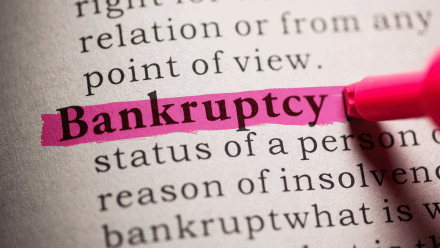When an individual files for bankruptcy, a bankruptcy trustee is tasked with ensuring creditors are repaid as much as possible. This process often involves identifying assets or donations that can be recovered, including tithes and church contributions, depending on the circumstances.
When a Bankrupt Giver’s Donation is Jeopardized
Section 548(a) of the bankruptcy code grants a bankruptcy trustee authority to recover (“avoid”) two types of “fraudulent transfers” made by bankrupt debtors within a year of filing for bankruptcy:
1. Intent to Defraud
Under Section 548(a)(1), a trustee can recover transfers if:
- The transfer was made with the intent to hinder, delay, or defraud creditors.
- These transfers include voluntary or involuntary transactions within one year of filing for bankruptcy.
2. Transfers for Less Than Reasonably Equivalent Value
Under Section 548(a)(2), a trustee can recover transfers if:
- The transfer involved cash or property exchanged for less than its equivalent value.
- The debtor was insolvent at the time or became insolvent as a result of the transfer.
The Impact on Charitable Contributions
Many trustees have attempted to recover donations made by bankrupt individuals to churches, arguing these donations are for less than “reasonably equivalent value.” Courts have often agreed, ruling that churches must return these funds. This created financial hardships for churches, as the donations were often spent by the time recovery was demanded.
The Religious Freedom and Charitable Donation Protection Act
To protect churches and charities, Congress passed the Religious Freedom and Charitable Donation Protection Act. This amendment to Section 548(a)(2) shields qualified charitable contributions from recovery by bankruptcy trustees if:
- The contribution does not exceed 15% of the debtor’s gross annual income.
- The contribution exceeds 15% but is consistent with the debtor’s past giving practices.
Key Limitations
This Act does not protect donations made with the intent to defraud creditors. Trustees can still recover contributions if fraudulent intent is proven.
Contributions Exceeding 15% of Annual Income
A significant question arises when donations exceed 15% of annual income. A federal appeals court ruled that if contributions exceed this threshold, all contributions, including the first 15%, may be recoverable. This precedent highlights the importance of understanding the potential risks for both donors and churches. Read more about bankruptcy laws here.
Protecting Churches and Donors
Churches should be aware of the potential implications of receiving large contributions from members who may face financial difficulties. Advising donors to consult with financial advisors can mitigate risks for all parties involved.
FAQs About Charitable Contributions and Bankruptcy
1. Are all charitable contributions protected from recovery by bankruptcy trustees?
No, only contributions that meet the criteria under the Religious Freedom and Charitable Donation Protection Act are protected.
2. What happens if a donor’s contributions exceed 15% of their income?
Contributions exceeding 15% of gross annual income may be recoverable by a bankruptcy trustee, including the first 15%.
3. Can churches keep donations made with fraudulent intent?
No, donations made with an intent to defraud creditors are not protected under the Act and can be recovered by trustees.
4. How can churches protect themselves from financial liability?
Churches can establish clear policies and advise donors to consult financial advisors before making significant contributions.
For more detailed legal guidance, refer to the IRS guidelines on charitable contributions.




